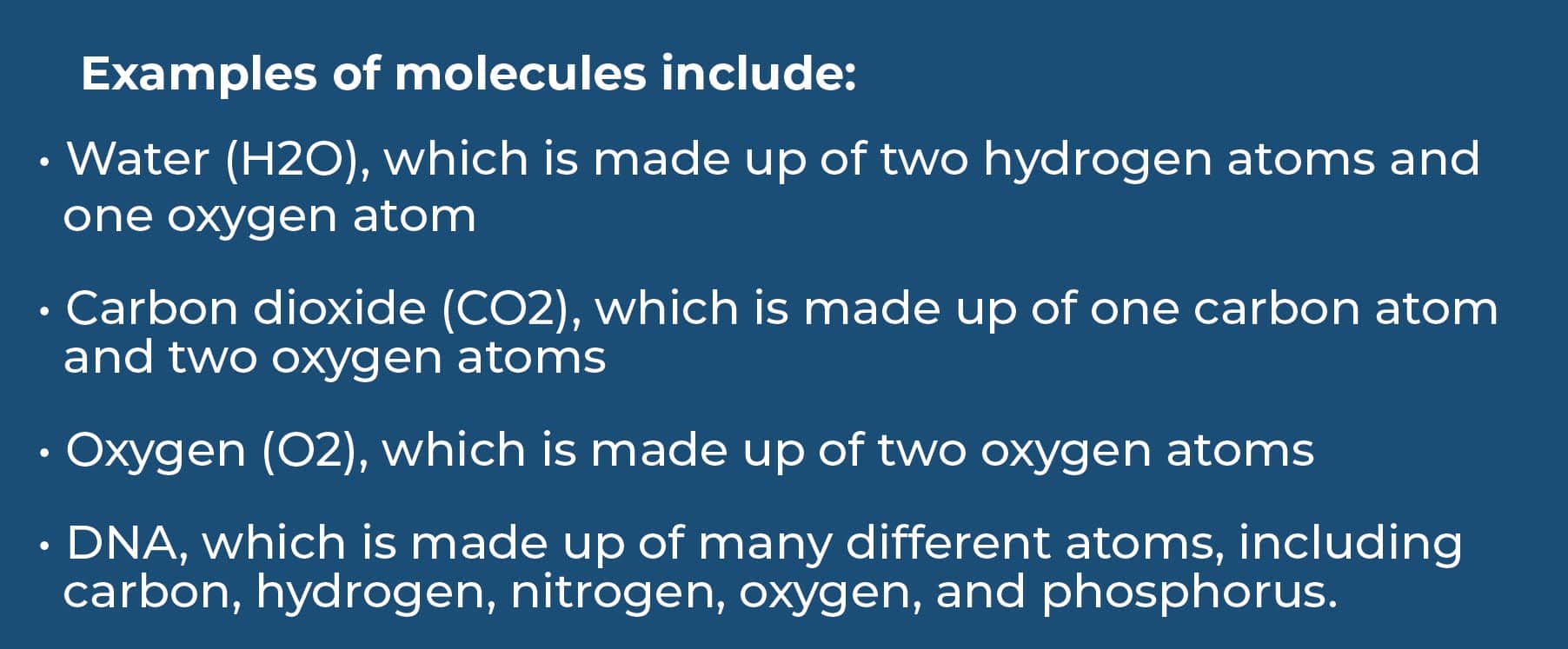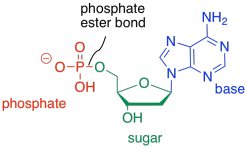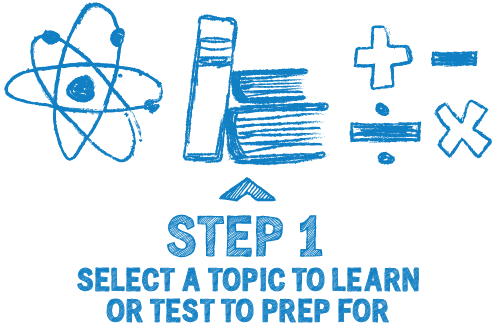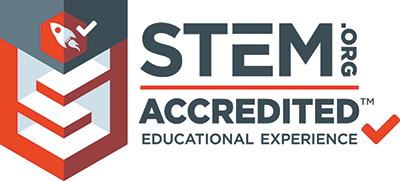Can Organic Molecules Bond to Inorganic Molecules
Grade 6 Science Worksheets
A molecule is a group of atoms that are chemically bonded together. These atoms can be of the same or different chemical elements. The chemical bond between the atoms can be covalent or ionic. A molecule can be a single atom, such as a molecule of helium (He) or can be made up of many atoms, such as a molecule of water (H2O). The arrangement and number of atoms in a molecule determine its chemical properties and reactivity.
Can Organic Molecules Bond to Inorganic Molecules - Grade 6 Science Worksheet PDF
This is a free printable / downloadable PDF worksheet with practice problems and answers. You can also work on it online.
|
Untimed | |
Sign up with your email ID to access this free worksheet.
"We really love eTutorWorld!"
"We really love etutorworld!. Anand S and Pooja are excellent math teachers and are quick to respond with requests to tutor on any math topic!" - Kieran Y (via TrustSpot.io)
"My daughter gets distracted easily"
"My daughter gets distracted very easily and Ms. Medini and other teachers were patient with her and redirected her back to the courses.
With the help of Etutorworld, my daughter has been now selected in the Gifted and Talented Program for the school district"
- Nivea Sharma (via TrustSpot.io)
Molecules are the building blocks of matter, and they are essential to many chemical and biological processes that occur in living organisms and in the environment.

What are organic molecules?
Organic molecules are a type of molecule that contain carbon atoms bonded to hydrogen atoms, with the exception of a few molecules like carbides, cyanides, and cyanates, which do not contain hydrogen.
Organic molecules are the basis of life on Earth and they form the backbone of all living organisms, including plants, animals and microorganisms.
Examples of organic molecules include:
- Carbohydrates such as glucose (C6H12O6) and sucrose (C12H22O11), which are used for energy storage and as structural components in all living organism.
- Lipids such as triglycerides (C55H98O6) and phospholipids, which are used for energy storage, insulation, and as structural components of cell membranes.
- Proteins such as enzymes, hormones, and structural proteins, which perform a wide range of functions in living organisms, including catalyzing metabolic reactions, replicating DNA, responding to stimuli, and transporting molecules across cell membranes.
- Nucleic acids such as DNA and RNA, store and transmit genetic information.
- Vitamins and minerals are also organic molecules that are essential for growth, metabolism, and other functions.
Organic molecules also form the basis of many industrial and commercial products, such as plastics, dyes, drugs, and fuels. Understanding the structure and properties of organic molecules is essential for fields such as chemistry, biology, and medicine.
What are inorganic molecules?
Inorganic molecules are molecules that do not contain carbon-hydrogen bonds. Examples include water (H2O), carbon dioxide (CO2), and sulfuric acid (H2SO4).
These molecules can be found in a wide range of natural and man-made materials and are used in many different industries and applications, including agriculture, medicine, and manufacturing. Some other examples include:
- Nitrogen gas (N2)
- Chlorine gas (Cl2)
- Ammonia (NH3)
- Hydrogen peroxide (H2O2)
- Salt (NaCl)
- Calcium oxide (CaO)
- Sulfur dioxide (SO2)
- Copper sulfate (CuSO4)
- Iron(III) oxide (Fe2O3)
“There have been times when we booked them last minute, but the teachers have been extremely well-prepared and the help desk at etutorworld is very prompt.
Our kid is doing much better with a higher score.”
6th Grade Tutoring
eTutorWorld offers Personalized Online Tutoring for Math, Science, English, and Standardised Tests.
Our Tutoring Packs start at just under $22.49 per hour, and come with a moneyback guarantee.
Schedule a FREE Trial Session, and experience quality tutoring for yourself. (No credit card required.)
Can Organic Molecules Bond to Inorganic Molecules?
Yes, organic molecules can bond to inorganic molecules. Organic molecules, which contain carbon-hydrogen bonds, can form chemical bonds with inorganic molecules, which do not contain carbon-hydrogen bonds. There are several types of chemical bonds that can occur between organic and inorganic molecules, including covalent bonds, ionic bonds, and hydrogen bonds.
One example is the formation of a coordination bond between an organic molecule, such as an amine, and a metal ion.

Additionally, Organic-inorganic Hybrid materials are a class of materials that are composed of both organic and inorganic components. These materials can exhibit unique properties that are not found in either the organic or inorganic component alone.
In summary, organic and inorganic molecules can interact and bond to each other, forming new compounds and materials, creating unique properties and characteristics.
Do You Stack Up Against the Best?
If you have 30 minutes, try our free diagnostics test and assess your skills.
FAQS
Can organic molecules form chemical bonds with inorganic molecules?
Yes, organic molecules can form chemical bonds with inorganic molecules through covalent, ionic, and hydrogen bonding.
Can inorganic molecules bond to organic molecules?
Yes, inorganic molecules can bond to organic molecules by forming chemical bonds such as covalent, ionic, and hydrogen bonds.
Are organic-inorganic hybrid materials possible?
Yes, organic-inorganic hybrid materials are possible and can exhibit unique properties not found in either the organic or inorganic component alone.
Do inorganic and organic molecules have different properties?
Inorganic and organic molecules can have different properties, but when they bond, they can create a new compound with unique properties not found in either the inorganic or organic component alone.

Kathleen Currence is one of the founders of eTutorWorld. Previously a middle school principal in Kansas City School District, she has an MA in Education from the University of Dayton, Ohio. She is a prolific writer, and likes to explain Science topics in student-friendly language. LinkedIn Profile
Affordable Tutoring Now Starts at Just $22.49
eTutorWorld offers affordable one-on-one live tutoring over the web for Grades K-12. We are also a leading provider of Test Prep help for Standardized Tests (SCAT, CogAT, MAP, SSAT, SAT, ACT, ISEE, and AP).
What makes eTutorWorld stand apart are: flexibility in lesson scheduling, quality of hand-picked tutors, assignment of tutors based on academic counseling and diagnostic tests of each student, and our 100% money-back guarantee.
Whether you have never tried personalized online tutoring before or are looking for better tutors and flexibility at an affordable price point, schedule a FREE TRIAL Session with us today.
*There is no purchase obligation or credit card requirement
Grade 6 Science Worksheets
- Inquiry process
- Nature of Science
- Scientific Inquiry
- Inquiry, Analysis and Problem Solving
- Ethical Practices
- Science and Society
- Biotic and Abiotic Factors
- Impact of Organisms
- Adaptation
- Spheres of Earth
- Natural Resources
- Environmental Issues
- Conservation of Earth
- Understanding Technology
- Abilities To Do Technological Design
- Structure of Earth
- Solar System
- Rocks and Fossils
- Earth Systems
- Plate Tectonics
- Evolution
- Magnetic Field of Earth
- Geologic Time
- Materials and Processes That Shape a Planet
- Astronomy
- Ecology
- Energy
- Kinetic and Potential Energy
- Energy Transfer
- Matter and its Structure
- States of Matter
- Physical and Chemical Changes
- Force and Motion
- Electricity and Magnetism
- Wave Interactions
- Sound
- Light
- Introduction to Life Science
- The Origin & History of Life On Earth
- Plant and Animal Cells
- Parts of a Cell
- The Cell Cycle
- How Living Organisms Get Energy
- Classification of Organisms
- How Plants Grow & Reproduce
- The Human Respiratory System
- The Human Cardiovascular System
- The Human Digestive System
- The Human Endocrine Systems
- The Human Nervous System
- The Human Muscular System
- The Human Skeletal System
IN THE NEWS

Our mission is to provide high quality online tutoring services, using state of the art Internet technology, to school students worldwide.
Online test prep and practice
SCAT
SSAT
ISEE
PSAT
SAT
ACT
AP Exam
Science Tutoring
Physics Tutoring
Chemistry Tutoring
Biology Tutoring
Math Tutoring
Pre-Algebra Tutoring
Algebra Tutoring
Pre Calculus Tutoring
Calculus Tutoring
Geometry Tutoring
Trigonometry Tutoring
Statistics Tutoring
Quick links
Free Worksheets
Fact sheet
Sales Partner Opportunities
Parents
Passive Fundraising
Virtual Fundraising
Our Expert Tutors
Safe and Secure Tutoring
Interactive Online Tutoring
After School Tutoring
Elementary School Tutoring
Middle School Tutoring
High School Tutoring
Home Work Help
Math Tutors New York City
Press
©2022 eTutorWorld Terms of use Privacy Policy Site by Little Red Bird
©2022 eTutorWorld
Terms of use
Privacy Policy
Site by Little Red Bird










